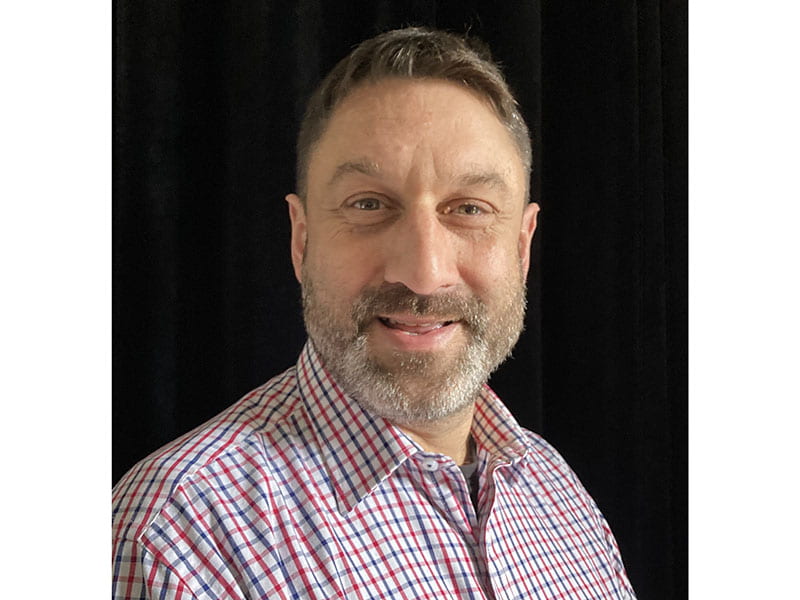When criminologist Dr Alistair Harkness decided to focus his work on the impacts of crime on farmers and rural communities, it was “not a crowded field”. In fact, he was one of two criminologists to pave the way in this specialty field (along with UNE’s Elaine Barclay, now retired).
Alistair has taken up a role as a senior criminology lecturer at the University of New England currently from his home in Victoria, while hoping to move to the Armidale campus in August pending an ease of lockdown restrictions in the current COVID-19 crisis.
With a background in politics – he was a Member of Parliament in Victoria’s Lower House – and later as a lecturer in Victoria’s Gippsland region, the jump to rural criminology was borne of a desire to do more to understand and help the people of his region.
“There’s a broader perception we’re up against where rural spaces are seen as peaceful, tranquil, idyllic and lovely – places you go to escape the hustle and bustle of the city. To get away from so-called urban problems like armed gangs and break-ins,” Alistair says.
“But there’s also been a bit of a lackadaisical attitude among rural communities as well, a bit of a ‘she’ll be right’ attitude to crime and crime prevention: It’ll be ok, I don’t need to lock my stuff up, what are the chances?
“I think one of the key issues is about changing people’s attitudes, based on evidence, to the behaviours that they do as individuals, to keep their property safe, but also police practice as well. So how can police better engage with farmers to encourage reporting and provide the educative function rather than just a reactive law enforcement function?”
Alistair says his experience as a legislator for eight years gave him the grounding to help lead the way and make a real difference.
“Reading bills and passing legislation gave me a solid grounding for academia, but also that practical element – how do you actually get things to change? And really that’s what criminal justice and criminology is all about. How do you do things better? How do you take some evidence and make things better for people?
“I started doing some research on farm crime, particularly thefts from farms; looking at what are the motivations, what do farmers think, what can they do, what can police do better, and how can it be prevented.
“Criminology is about looking at the attitudes, perceptions and behaviours around crime and responses to crime.
“When you look at farm crime, the impacts can be absolutely devastating. The agricultural industry is worth $60 billion a year to the country, so there are national and state-wide economic imperatives to do something about offending.
“But also on a localised level, for many farmers, their business is their private property as well. So there’s an element of fear about what’s happening out on their property and potential mental health and wellbeing impacts as well.”
It’s a lot to tackle, but momentum in the field is building.
“Things have changed over the last couple of years through the efforts of a number of people, who have been helping really build up rural criminology as a force to reckoned with in its own right.”
Firmly believing a collaborative approach is key to attracting attention and action to problem of rural crime, Alistair has helped establish and become involved in international networks of criminologists undertaking research in the field.
“We’ve seen the emergence of the Division of Rural Criminology at the American Society of Criminology and the establishment of a Rural Crime Working Group with the European Society, and Kyle Mulrooney [from UNE] and I have both been very heavily involved in the formation of the International Society for the Study of Rural Crime.”
Through these international networks, Alistair has helped coordinate publications of cutting-edge rural crime research, focused on aspects of rural crime offending and crime prevention in Australia and internationally, and also assisted in establishing the Centre of Rural Criminology at the University of New England as a member of the Board.
He says coordinated research is what’s required to boost and justify resources to help tackle farm and rural crime issues.
“Having the evidence around these issues is vital for receiving state and federal recognition that rural people need a similar proportion of support and resources as metropolitan areas.
“It provides justification for resourcing and also clear goalposts for how success can be measured. It’s needed to help change policies, practices and individual behaviours.”
Over time, he says he has come to understand more about the motivations for criminal activity, which in turn can influence the response to crime both in the areas of education and law enforcement activity.
“People offend for different reasons, but there’s always a risk-reward calculation involved: What will I get out of this offence compared with the risk of getting caught? There are different ways to tackle different issues of crime so that the risk is higher and the reward less enticing.”
Farm crime is just one aspect of rural crime, with many issues yet to be properly explored.
“Most crime that happens in urban settings also happens in rural areas – but the similarities and differences in the impact of these crimes in rural areas often just haven’t yet been studied and documented, including for example, the issue of fraud in rural areas, which is largely untapped. You could take almost any issue and put a rural lens on it, and we need more criminologists to focus on this.
Alistair is looking forward to his new role as a senior lecturer at UNE.
“I’m really thrilled to be able to work at the Centre for Rural Criminology at UNE where fantastic work is already underway, and to help solidify the work and reputation of the centre as the foremost international place for rural crime scholarship.
“I also love working in rural areas with country people. There are no pretences.”



Recent Comments